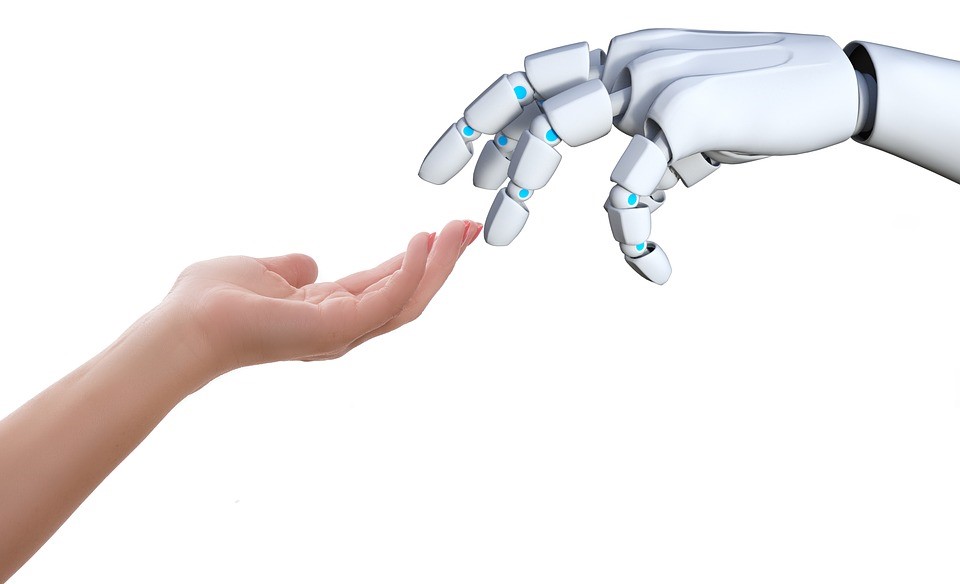Robots have become better in how they talk, walk and understand emotions. But do robots need to be like humans in order for us to bond with them?

Humans have an automatic capacity to treat non-human agents as human
Image courtesy of Pixabay
Future prospects
We live in an ever-aging society where there will soon be a huge shortage of human caregivers. It then becomes quite apparent to more and more of us that intelligent machines will take care of those in need of assistance, the elderly. “Will the elderly be able to connect socially with a robot assistant as they do now with a human care giver?”, ask the skeptics. The emerging answer is ‘yes’. More interestingly, robots need not be perfect replicas of humans, neither in appearance, nor in behavior, for the elderly to start treating them as equals.
The elderly bonding with a robot
Researchers at the Vrije Universiteit Amsterdam conducted a pilot study in which three elderly ladies interacted with a social robot called Alice for a period of time. Alice, a robot able to listen, talk, express emotions and appropriately respond to its communicative partner, was brought to the homes of the elderly women. The study, on the basis of which a documentary, Alice Cares, was shot, revealed that each one of the three elderly ladies developed a form of affective bonding with Alice. For example, the documentary features an episode in which one of the elderly women treats Alice as a human. When the elderly lady and Alice are visiting a place to have a coffee, the woman asks Alice, “You cannot have cookies, can you?” A genuine question like this makes one think that apparently it does not take a great deal to start perceiving non-human agents as human. But why is this the case?
Reasons for attributing humanness to non-humans
The mechanism at play is anthropomorphism, which is attributing human-like characteristics and thoughts to a non-human entity. Not only technological devices but also an array of other non-human entities (ranging from geometric shapes to weather patterns) are easily ascribed human-like properties. We anthropomorphize because the experience of being a human is the most readily available. More importantly, perceiving non-human agents as human has certain benefits. One of the benefits of anthropomorphism is that it facilitates interpretations of the behavior of these nonhuman agents. The other is that it can serve as a means for social connection, especially when the human connection is lacking, for example, when people feel lonely.
A possible dilemma
Some worry that social robots like Alice’s replacing human care givers will lead to reduced quality of life for the elderly. Perhaps this worry is ungrounded. With aging populations, there will be more and more people who reach old age in good cognitive and physical shape. The elderly will require not only some form of assistance but also social connection. The dilemma then lies not in whether having a robot assistant endangers human dignity. The big issue revolves around the idea of having a robot to build a social relationship with versus building no relationship at all. Many people will opt for the former. Quite interestingly, it will not be effortful to form a bond with a robot because of our capacity to imbue everything with human thoughts and desires irrespective of how it looks.
Written by Julija. Edited by Mahur and Marisha.
